2021 has marked the return of the National and International coffee competition scene – and we couldn’t be more excited to unpack how the IKAWA is being (literally) used on the world stage once again.
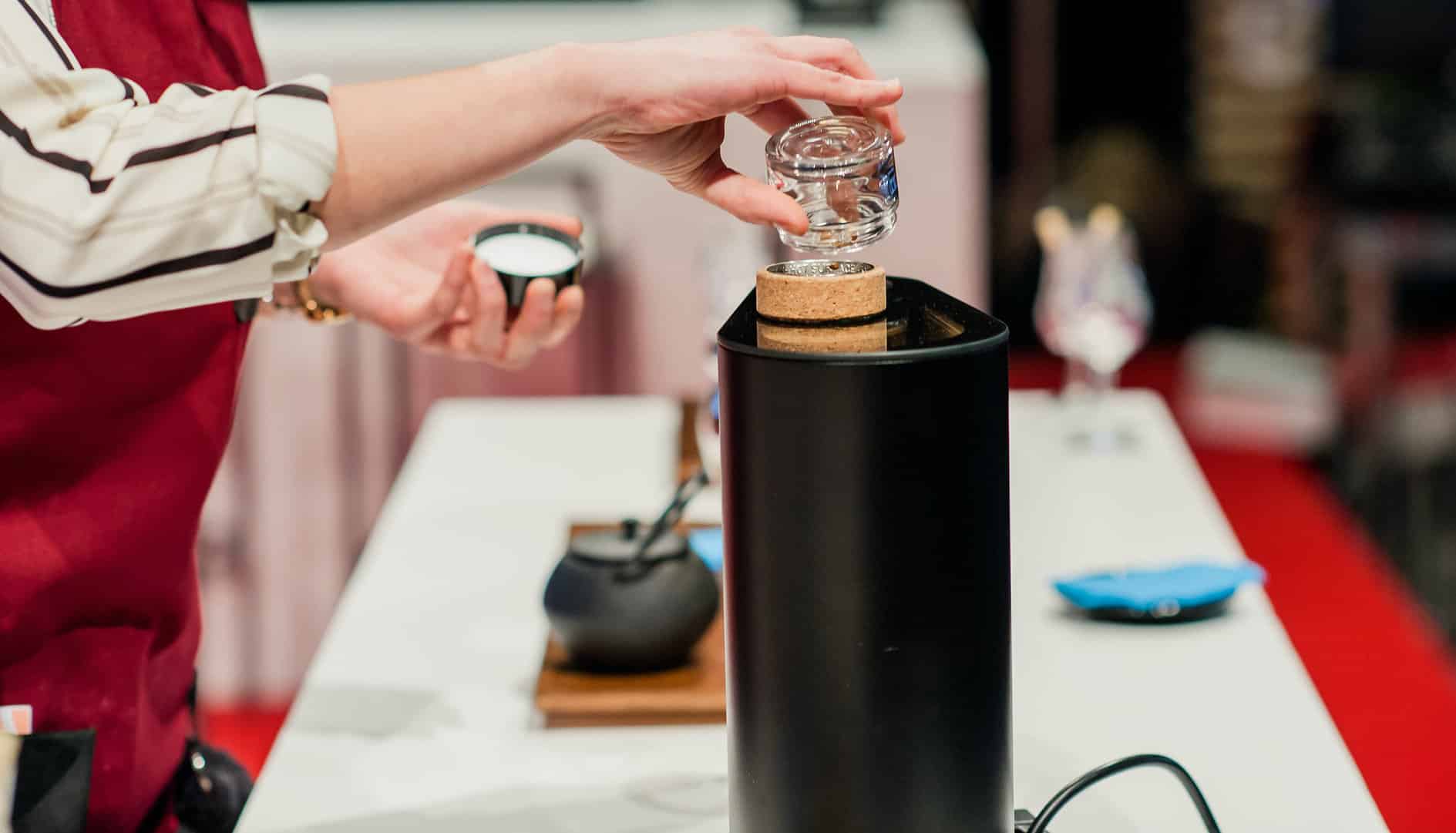
2021 has marked the return of the National and International coffee competition scene – and we couldn’t be more excited to unpack how the IKAWA is being (literally) used on the world stage once again.
Back in 2019 we spoke with Patrik Rolf, who at the time, pushed the boundaries using his IKAWA to develop an 11 minute roast just 6 hours before his routine. The coffee community looked on in awe as he went on to score the highest open service ever recorded and finished second overall. Nice… Read more here
But we wanted to know how other competitors, and trainers approach competition roasting in 2021 – so we caught up with Irini Daskalopoulou who really caught our attention by using her IKAWA Sample Roaster during her performance at this year’s WCC at HOST in Milan, Italy.
Irini’s coach, Stefanos Domatiotis, can’t go unmentioned either! As former WBrC World Champion, founder of ‘Create’ (a unique Tasting and Training Centre based in Athens), long term speciality coffee mainstay on the International Coffee Scene and frequent IKAWA Pro user.
Irini is a force to be reckoned with having placed in the top three every year at the Hellenic Barista Championships since 2017.. Her first job within the coffee industry was in 2015, and she’s never looked back – especially since getting the competition buzz when she first entered in 2016. “The thing I love most about [the industry] are all of the opportunities I get to meet new people, especially people with unique coffee cultures! And that is why I was first drawn to compete in coffee”.
Inspired by the traditional Ethiopian coffee ceremonies experienced when she visited origin in early 2020 – Irini and Stefanos decided that roasting on stage with the IKAWA Sample Roaster was the only option to achieve this.
Their plan; to recreate a comparable sensory experience to the traditional Ethiopian coffee ceremony and capture the connection to origin that makes the roasting process so evocative. “For me the IKAWA has the power to make a group of people engage using all their senses and share the same experience”. Now the concept is established, next is selecting a coffee and developing a roast.
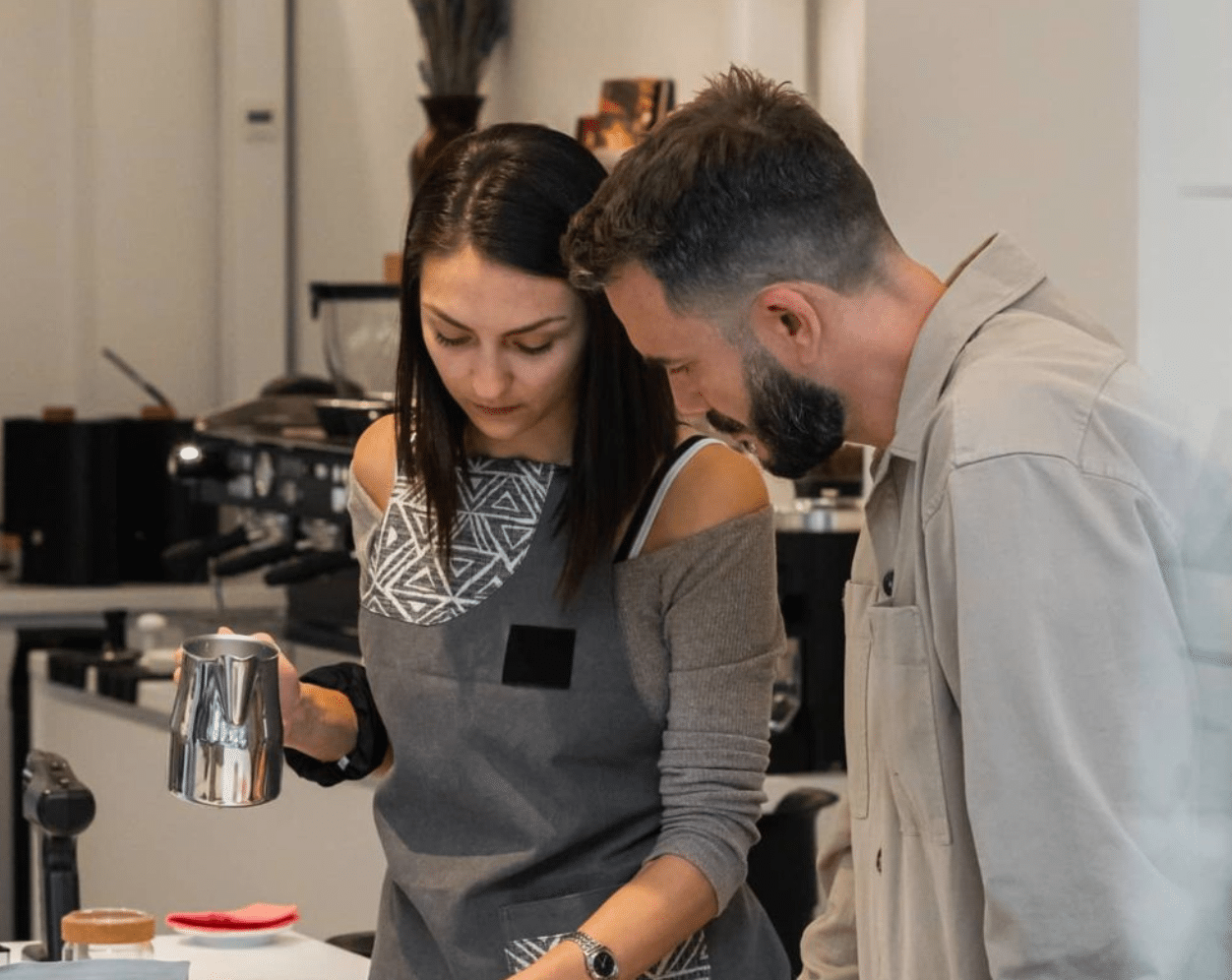
Irini used an IKAWA Sample Roaster to systematically work through her coffee options with coach Stefanos. She told us “in order to fully assess the coffees, we used different roast profiles using the IKAWA” eventually resulting in two stand-out coffees for the first two elements of her routine.
Irini’s outlined approach of roasting a range of coffees using a select number of specific profiles is a familiar one to many IKAWA users. Take a profile at the lighter end of your preference spectrum, something in the middle and one a little more developed.
The idea behind evaluating the full scope any given coffee allows you to hone in to the characteristics and flavours you are looking for, whilst quickly identifying unsuitable candidates.
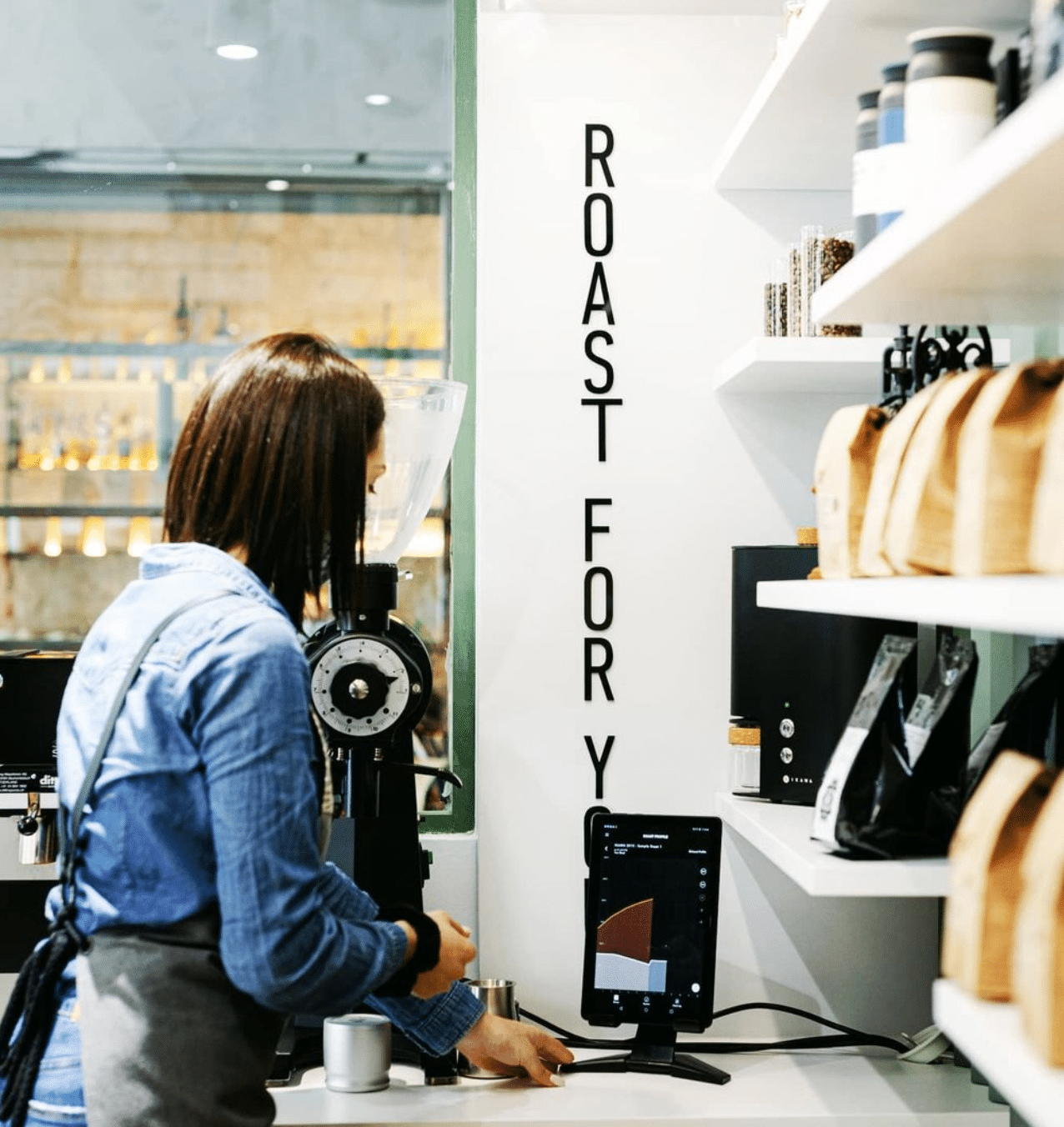
There are so many ways to approach this, but for the purposes of example, we’re using IKAWA Sample Roast 1 as the base. This profile is a great go-to profile for sample roasting. The profile applies a steady heat over 6 minutes creating an even development on most coffees, revealing sweetness and acidity but not interfering with the clarity of the cup.
Once you’ve cupped your coffee, or want to jump straight into more roasting, here are some easy tips to make your roast outcome darker or lighter.
Any profile can be adapted for a darker roast outcome by increasing the amount of heat energy applied to the beans, there are two key methods of achieving this:
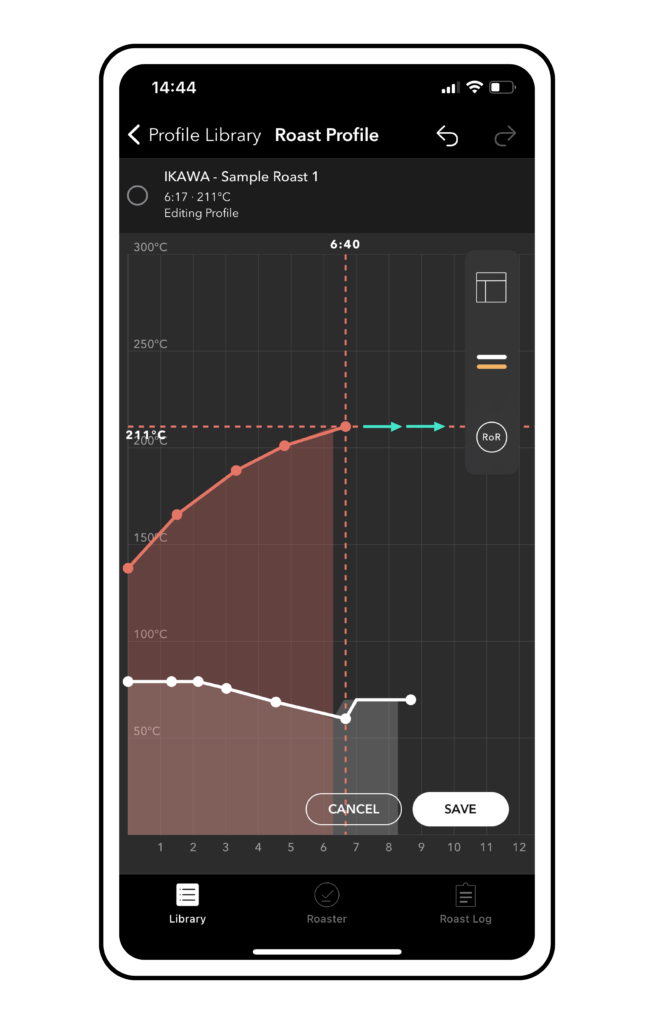
Increase the length of your roast. Do this by moving the final point on the graph to the right along the X axis. For a smooth curve, you can go back and add in additional points to adapt accordingly.
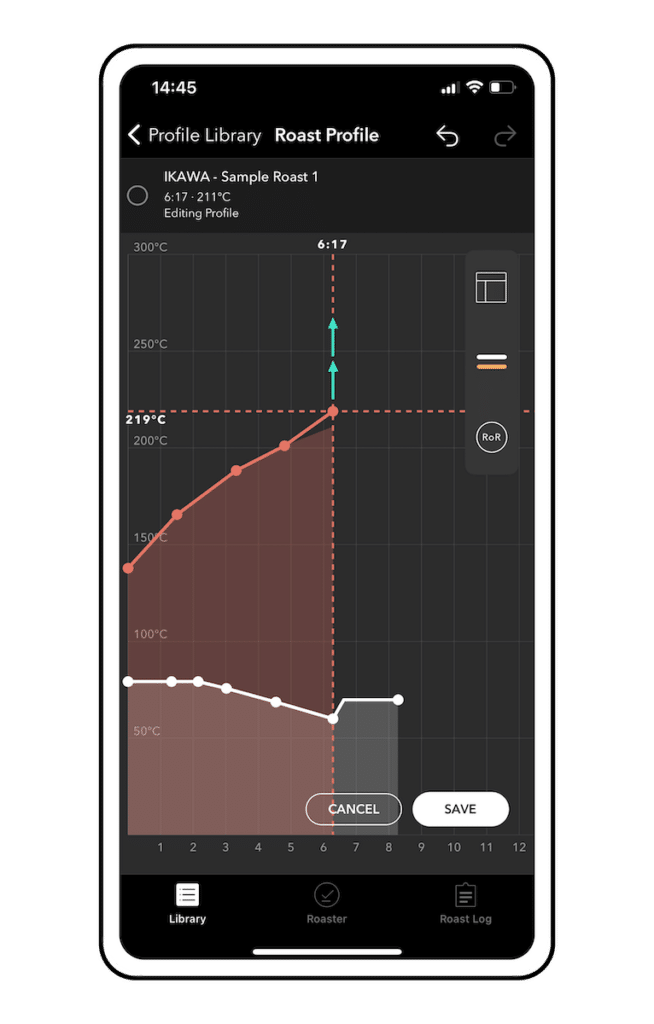
Increase the temperature of your roast. There are lots of different approaches to this, but an easy method is to move the final point on the graph upwards on the y axis increasing the end temperature before the cooling cycle.
The inverse of the above is also applicable to any profile. Achieve a lighter outcome by reducing the amount of heat energy applied during the roast.
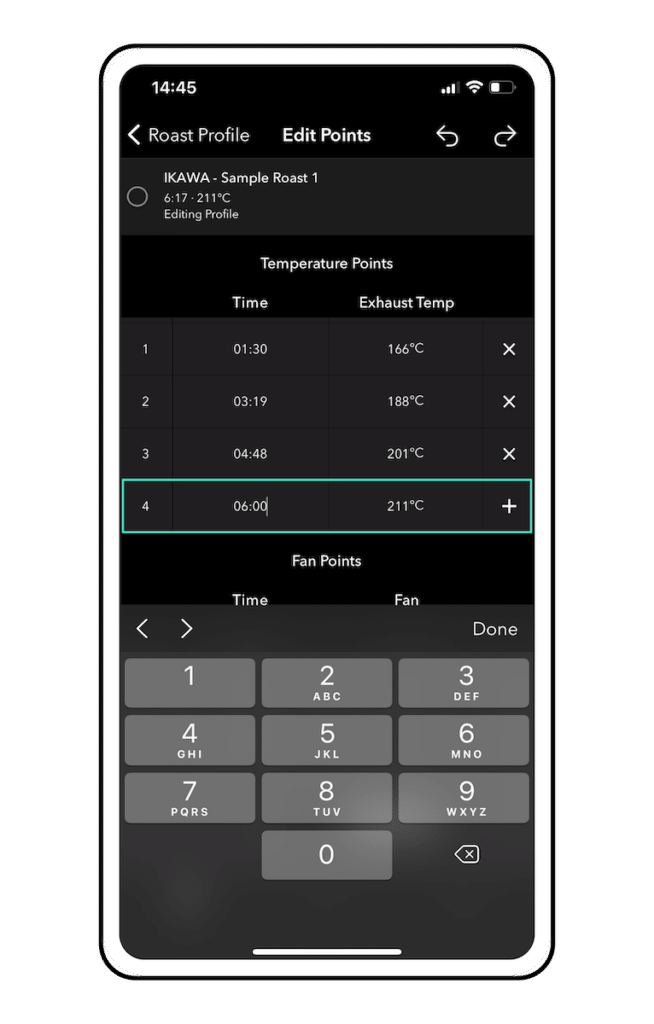
Reduce the length of your roast. Do this by moving the final point on the graph to the left along the X axis, or jumping into table edit mode and typing a shorter duration.
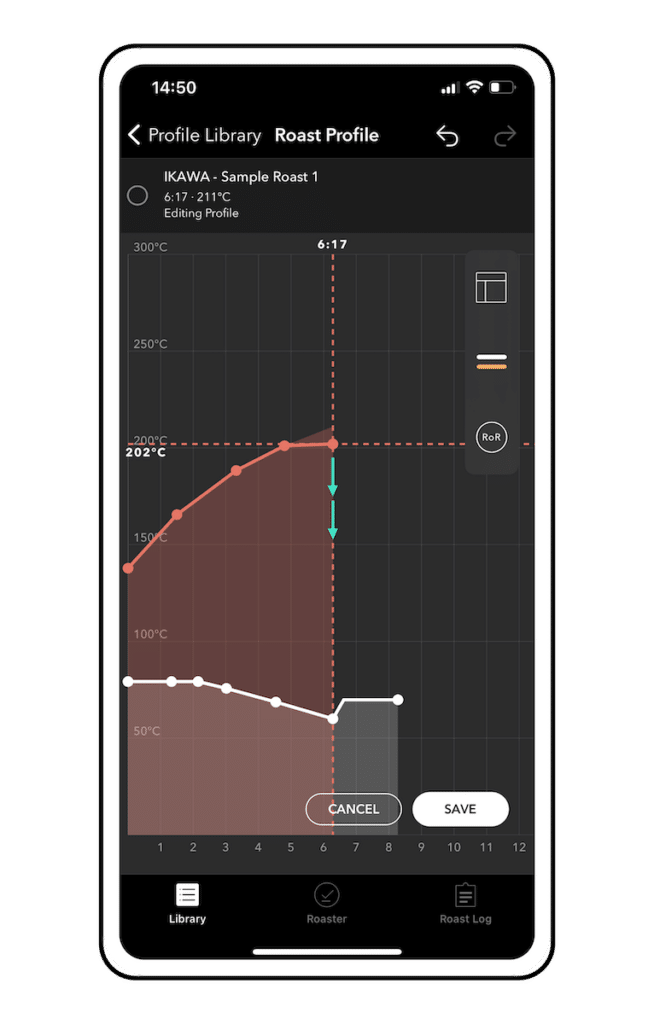
Reduce the temperature of your roast. As with making the roast darker, there are lots of different approaches to this, but an easy method is to move the final point on the graph downwards on the y axis – thus reducing the end temperature.
Many of the insights and learnings, such as first crack and colour change, gained during the process of sample roasting and evaluation can be used when scaling up onto production roasters. Be sure to add these additional roast markers in-app whilst you’re roasting.
Over at the Nordic Roasters Forum in 2019, we conducted some research about how the Roast Affects The Cup exploring sample evaluation in detail, read the blog here.
Irini’s choice of green bean for her signature beverage was an Anaerobic Natural from Kenya. Boasting classic mouth watering berry flavours of strawberry, raspberry with bright acidity and accents of blood orange.
She arrived at this decision using the same process as her other two coffees. Roast, cup, adjust, roast, cup and lock in a decision. But this was different. The coffee for her signature beverage would be roasted directly in front of the panel. It needed to deliver the elevated and intensified flavours and aromas – all within the bounds of the 15 minutes mandated for the routine – and primed for immediate grinding, followed by extraction.
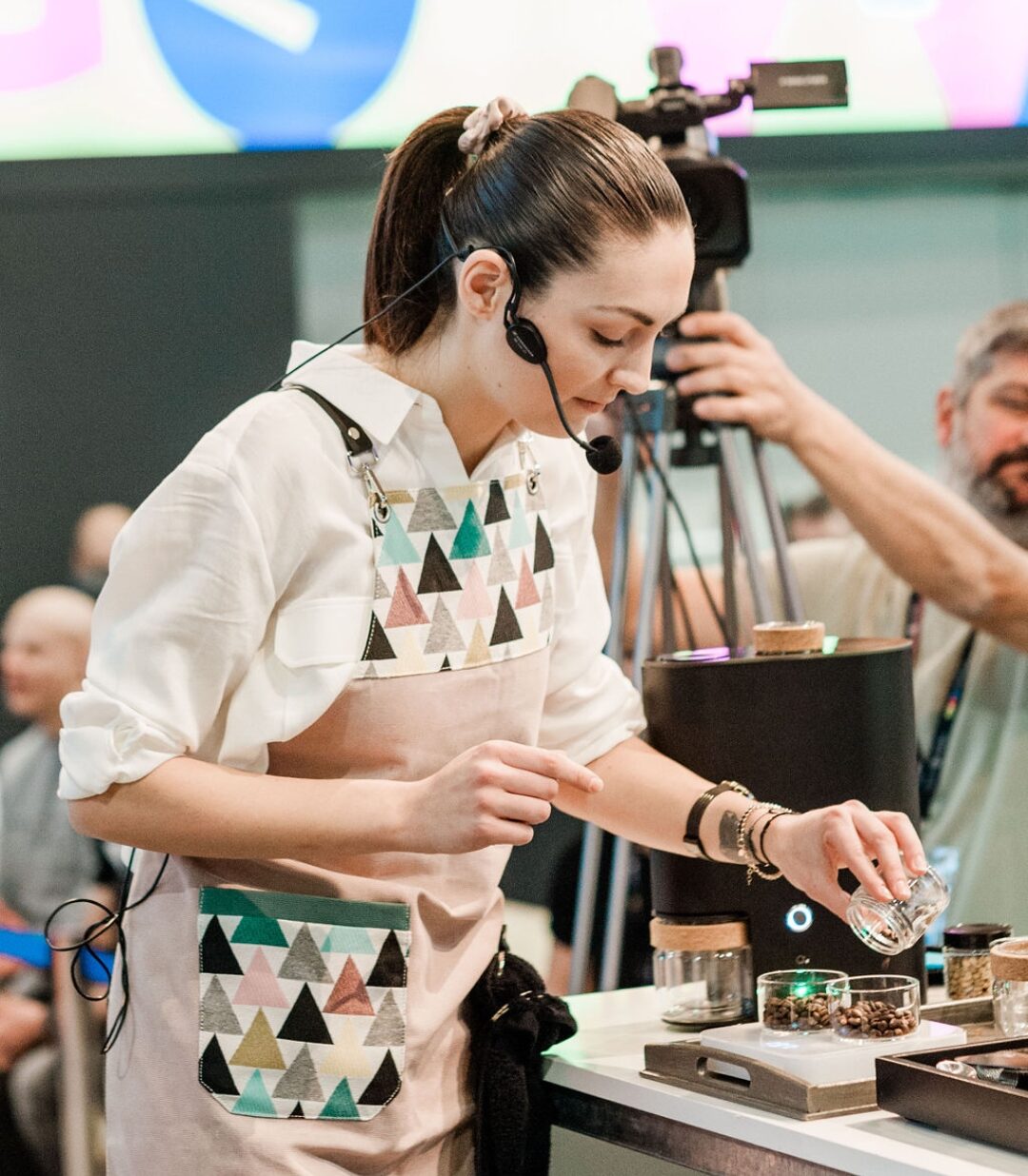
Irini shared thoughts on exactly what the IKAWA Sample Roaster added to her routine “What really fascinates me about the [IKAWA] is the idea of being able to have great results in such a short time.” and naturally this is essential “when it comes to the stage performance”.
“I believe it is magical to be able to witness the whole process of roasting, experiencing the aromas from the IKAWA and then experiencing something completely unique…”. We couldn’t agree more. Thanks Irini!
If you would like to experiment with other competition roasts from around the world you can click here.
Follow her on instagram here: @irinidask
Follow coach Stefanos here: @stefanosdomatiotiss